
30 Nov ‘Welcome in Egypt!’
We floated though the streets of Egypt mesmerized, fascinated, overloaded with foreign sights, sounds and smells. A symphony of car horns and mosque prayer cries provided a soundtrack for the show of Egyptian life on display before our eyes. Egyptians zig-zagged through chaotic traffic with ease, the women wrapped in head scarves or face veils, the men often robed in galabiyaas and turbaned with fine cloth. Young boysbalanced huge baskets of bread on their heads while bicycling around the mass of cars and people. On the edge of the street, juicy lamb cooked on spits and felafel fried in huge woks of oil. Shoppers crowded around tables of colorful scarves, the salesmen clapping and yelling to announce their clearance prices. Old men sat in sidewalk coffee shops, drinking tea and smoking from sheesha water pipes, seemingly unfussed by the frenetic pace around them. Up above, hundreds of satellite dishes perched on dusty rooftops, graceful Arabic script adorned modern billboards, ornate minaret towers stretched to the sky from domed mosques.
Cairo – Egypt
Cairo was a spectacular welcome to Egypt. Medieval customs coexist with modern life and the millionares and beggars kneel to pray side by side. In this city of 20 million people, the noise, crowds and pollution overwhelmed us a bit, yet the Egyptians always took the time to greet us with, “Welcome in Egypt!” and immediately made us feel at ease in this foreign land. When we needed a break from the chaos, we could relax in the pillowed lounge of the Hotel Luna or keep watching the downtown street action from the 5th floor balcony of our huge room. Our first excursion, unsurprisingly, was to the world-renowned Giza Pyramids, which we were surprised to find right on the edge of the city! Though hard-pressed to live up to their high expectations, these ancient wonders were impressive and mysterious nonetheless and warranted a few hours of walking around the site and crouching deep into one of the pyramid’s claustrophoic corridors. However, the main course of our cultural feast in Cairo was wandering through the areas of Islamic Cairo. The narrow dirt roads were full of old world bazaars, rambling donkeys carts, and dozens of shiny marbled mosques. We ate flavorful street food, haggled spiritedly for goods and rested quietly inside the mosques, a place of retreat and refuge open to all. Though there was much history and antiquity to discover, at this point we were still more adrenalized by Cairo life today, and reveled in riding packed minibuses and metro trains across the city, listening to blaring Arabic dance music and having pleasant exchanges with Egyptian strangers who found us as interesting as we did them.
Aswan – Egypt
What we couldn’t imagine yet, was how different the rest of Egypt would be. Not long into our 13-hour train ride up the Nile Valley, the concrete metropolis gave way to impoverished mud brick villages and fertile, Nile-fed farms, stretching for miles before reaching the barren deserts on either side. At the end of our journey, a woman veiled in black lifted her child to face the train passengers and cheerily chanted “Allah Akbar”, ‘God is most great’, celebrating our safe arrival in Aswan, Egypt’s southernmost city. And what a blessing it was to be in this beautiful, laid-back place! Sucked in by the relaxed atmosphere, we ended up spending four days in Aswan just hanging out in the villages, on the Nile, in the bazaars and on the lovely rooftop garden of our Keylany Hotel. Along the corniche, or waterfront, we lingered in restaurants perched over the Nile, savoring the delicious flavors of the healthy Egyptian cuisine, while watching the boats go by. After meeting Captain Ali, we went felucca sailing for a few hours around the lush islands, gliding past ancient ruins and tombs high in the desert hills. The souks, or bazaars, were full of touristy treats – Egyptian clothes, alabaster carvings, colorful spices, exotic jewelery, statuettes – and hard working young salesmen. They beckoned us into their shops with friendly greetings and clever lines like, “Let me help you spend your money!” and “Hey lucky man, how many camels for your wife?” Though the soliciting was sometimes too persistent, it was always friendly and fun, challenging us to think of equally clever retorts. Consequently, we ended up spending a lot of our time making friends with the boys in the market. They, along with Captain Ali, who treated us to our first sheesha smoke, gave us a lot of their personal time, treated us to endless cups of tea over long conversations, and taught us a lot about Islam and Egyptian life.
After a week in Egypt, we are fascinated by what we’ve learned, and intrigued to discover more. However, most of all, we are moved by the Egyptian people, whose optimism, warmth and generosity have touched us. Friendly salesmen or shopkeepers have given us little gifts, expecting nothing in return, while people on the street or train are happy to offer us their last piece of bread. Wandering through villages off the tourist track, we’ve been invited over for tea and pleasantries, even if we can only communicate through giggles and body language. It’s because of the wonderful people here that we always feel, ‘Welcome in Egypt.’ Check out our adventures now in Luxor and the Nile River!
Egypt Travel Tips:
- Make sure you buy a travel guide, such as The Rough Guide, for Egypt to help you before and during your travels. There is so much information and things to know in order to better understand and enjoy your time in Egypt.
- Egyptians are master salesmen so you’ll need to know how to barter for everything from souvenirs to tours. Read Brad’s bargaining tips/dealing with touts.
- If traveling independently on public transportation, it will help to learn arabic numbers 1-10. It’s best to buy your train or bus tickets at least one day in advance at the station.
- Helpful Arabic phrases: ‘Aiwa’ – Yes / ‘La’ – No / ‘La shokran’ – No thank you ‘Salaam’ – Hello / ‘Ma’a salaama’ – Goodbye
- ‘Baksheesh’, or tipping, is a big part of the Egyptian culture. Always keep lots of small notes handy for tipping.
- Consider dressing modestly, covering the shoulders and legs (unless at a beach town) as this shows respect for Egypt’s conservative Muslim culture.
Rebecca Rasmus – Written in 2004 – Egypt


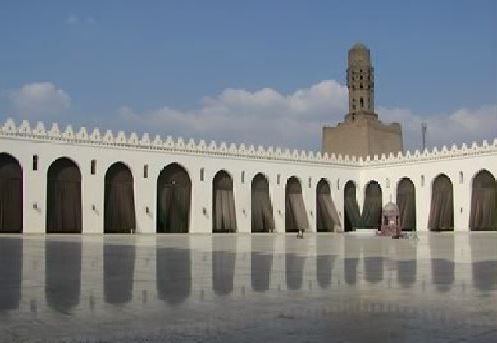
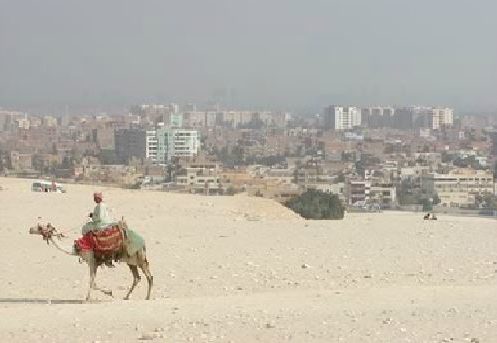
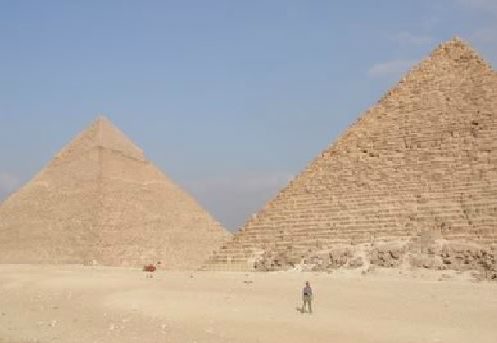
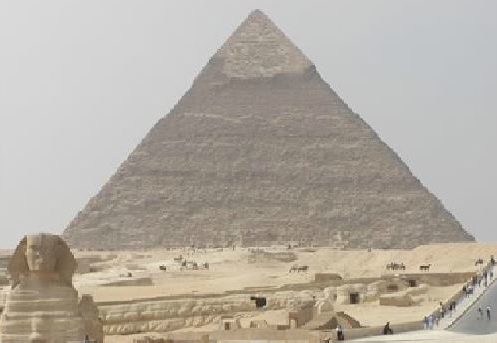
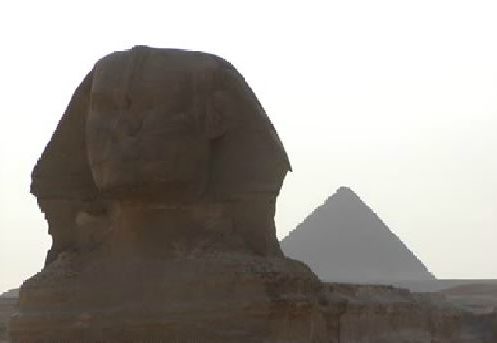
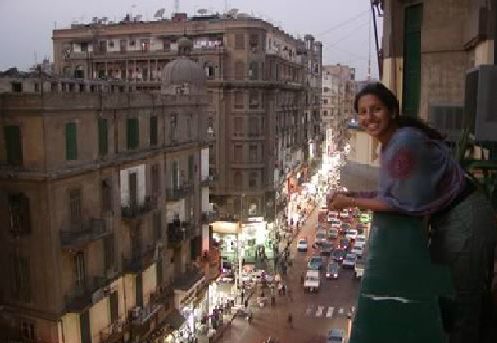
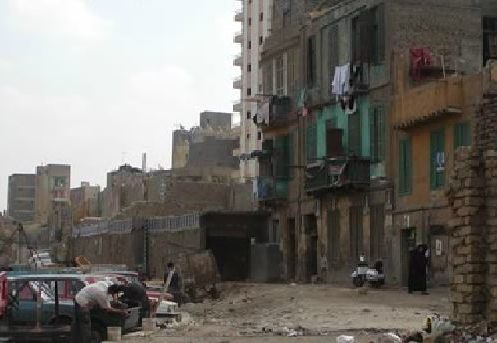
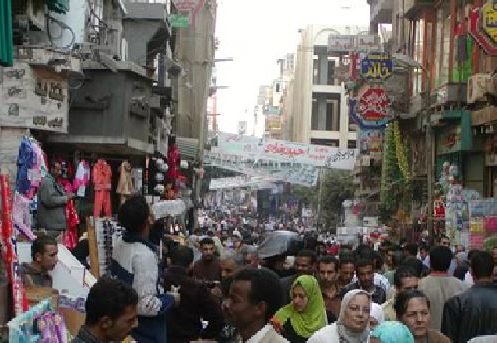
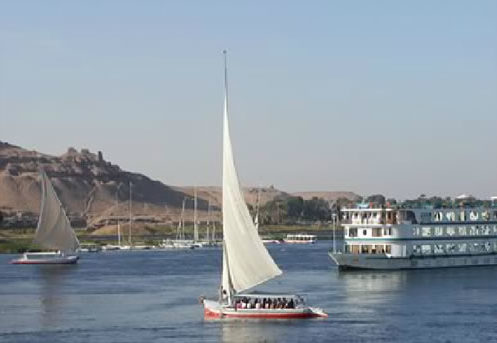
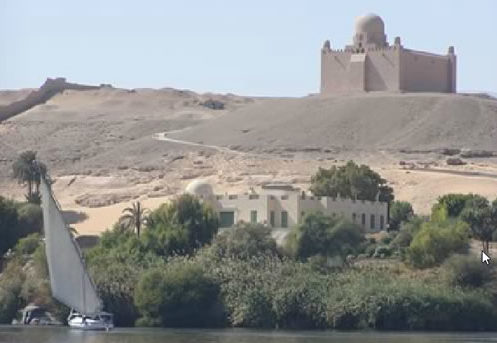
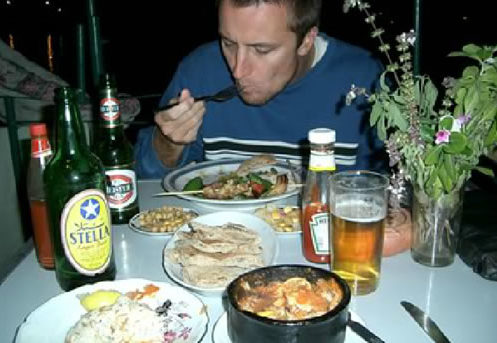
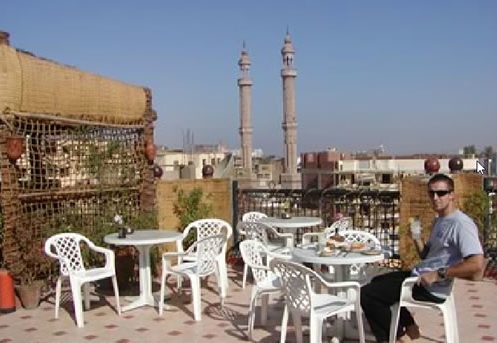
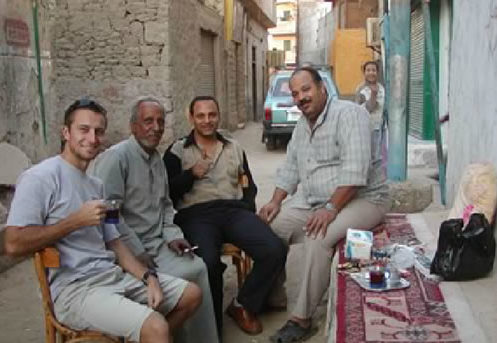
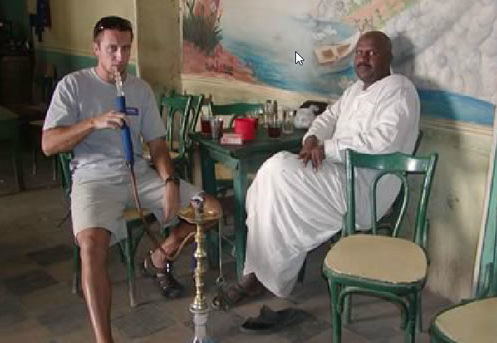
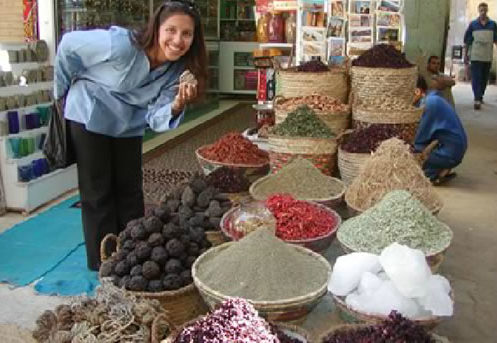
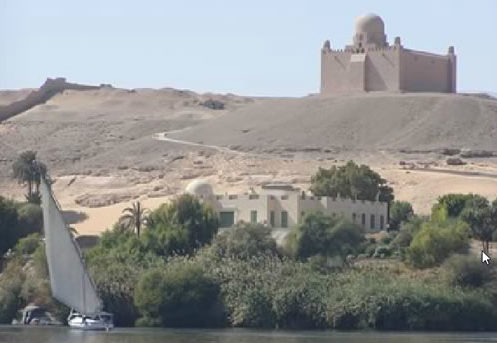






No Comments